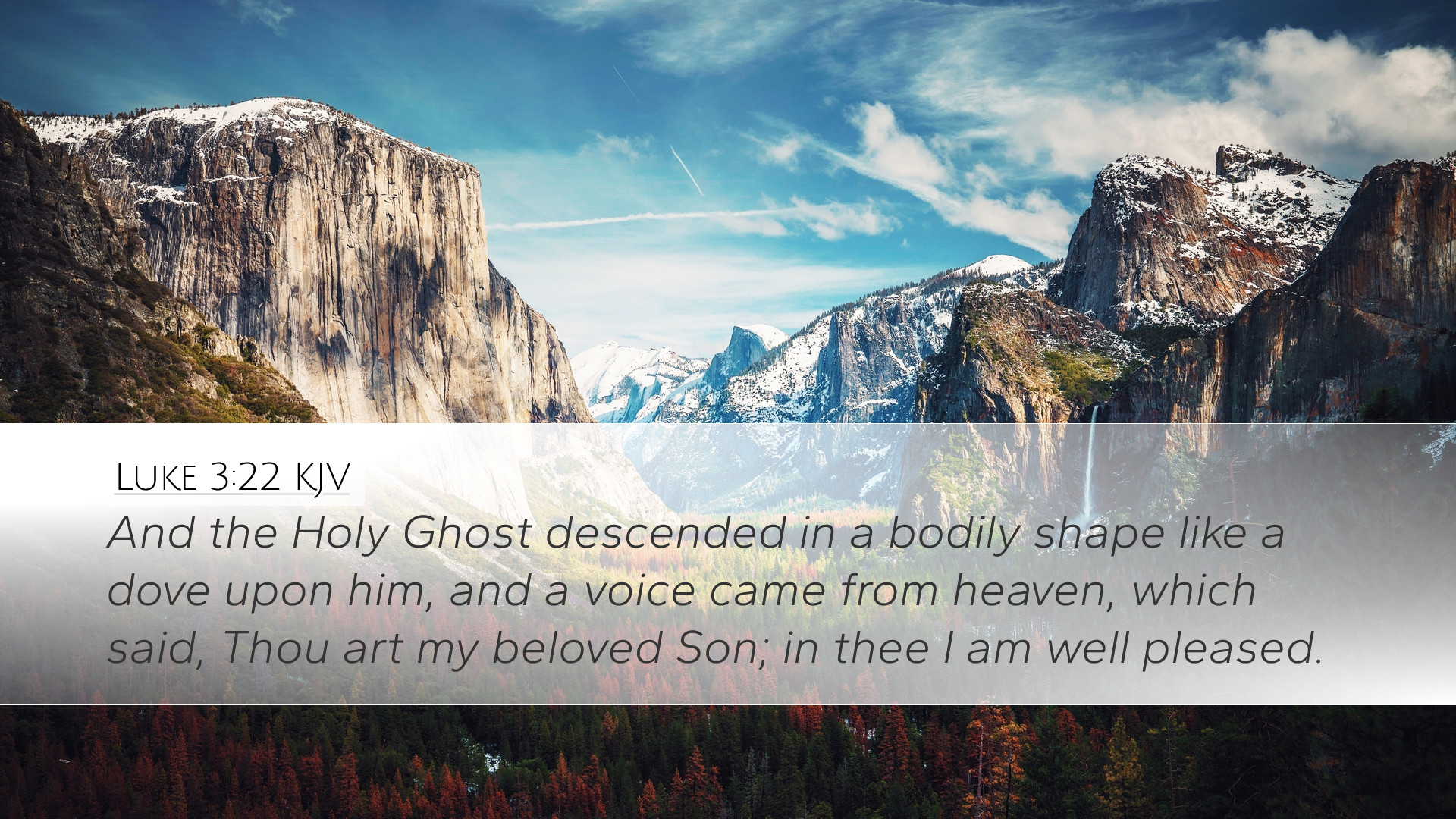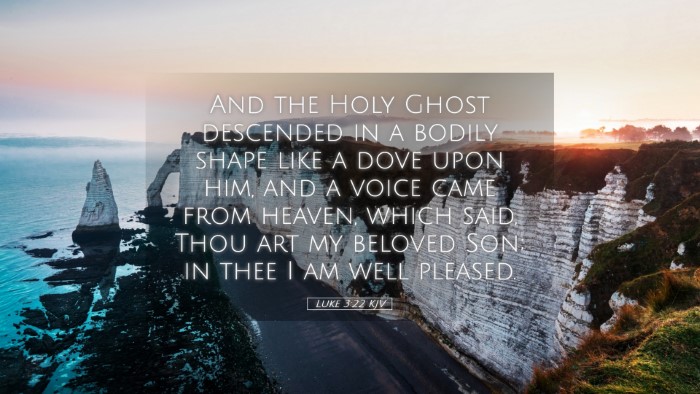Commentary on Luke 3:22
Luke 3:22 states: "And the Holy Ghost descended in a bodily shape like a dove upon him, and a voice came from heaven, which said, Thou art my beloved Son; in thee I am well pleased."
Introduction
This verse captures a pivotal moment in the life of Jesus, marking the event of His baptism. The significance of this passage transcends the mere act of baptism as it reveals the Trinitarian nature of God and confirms Jesus' divine sonship. Various public domain commentaries shed light on the theological and practical implications stemming from this event.
Exegesis of the Verse
In this moment, the twin manifestations of the Holy Spirit and the voice from Heaven serve as divine endorsements of Jesus’ ministry. Each element contributes to our understanding of Jesus' identity and mission.
Divine Affirmation of Sonship
The phrase "Thou art my beloved Son" indicates a unique and profound relationship between God the Father and Jesus. Here, we see an affirmation of Jesus's divine sonship. Both Albert Barnes and Adam Clarke emphasize the notion that this declaration is not only an affirmation of Jesus' identity but also an invitation for all believers to recognize Him as the Messiah.
The Spirit's Descent
The Holy Ghost descending "in a bodily shape like a dove" signifies purity and gentleness. As noted by Matthew Henry, the dove is associated with peace, making it a fitting symbol for the Holy Spirit as He initiates Jesus' earthly ministry. This event highlights the importance of the Spirit in both Jesus' life and in the life of the Church.
The Voice from Heaven
The voice from Heaven serves a dual purpose: it affirms Jesus' identity and sets the stage for His ministry. This divine endorsement reaffirms the prophetic fulfillment described in Isaiah regarding the coming of the Servant of the Lord. Commentaries reveal that this moment serves as a precursor to Jesus’ public engagement and mission, underscoring His authority and divine approval.
Theological Implications
-
Trinitarian Revelation: This passage presents one of the clearest New Testament insights into the Trinity, showcasing the interaction between the Father, Son, and Holy Spirit. Adam Clarke notes that the presence of all three persons in this moment affirms their distinct roles within the Godhead while functioning in unity.
-
Affirmation of Jesus’ Mission: The event serves as a clear declaration of the beginning of Jesus' public ministry. The approval from God the Father serves to both validate Jesus' authority and compel Him forward into His mission of redemption.
-
Children of God: By proclaiming Jesus as His beloved Son, this moment invites believers to understand their identity as children of God. Matthew Henry posits that just as Jesus was affirmed in His identity, believers, through faith in Christ, are also welcomed into sonship.
Practical Applications
For pastors and church leaders, Luke 3:22 serves as a reminder of the importance of consecration and divine empowerment before undertaking ministry. Commentators suggest that just as Jesus was publicly commissioned, leaders today should seek both the affirmation of their calling and the empowering presence of the Holy Spirit in their ministries.
Conclusion
Luke 3:22 encapsulates a moment that is rich in theological significance and practical application. It not only establishes Jesus in His divine mission but also serves to instruct us on the nature of God, our call to live in accordance with His will, and the necessity of the Holy Spirit in the life of every believer. As such, this pivotal verse invites deep reflection and action within the life of the Church.


